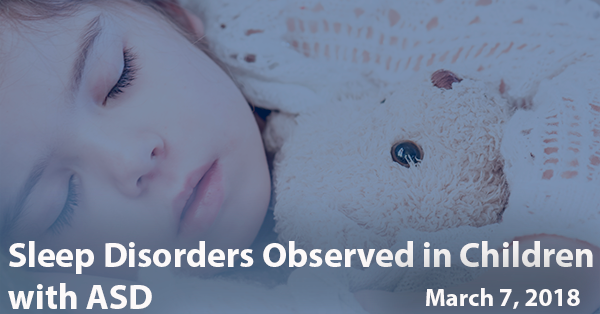Check out other stories from the Latest News
Children with ASD Are at Greater Risk of Sleep Problems
By Chelsea Toledo, M.A. on March 7, 2018

Background: Parents and caretakers of children with Autism Spectrum Disorder, or ASD, may notice disturbances in their children’s sleep. Among the many co-occurring symptoms in ASD, disturbed sleep can exacerbate existing issues with behavior and attention.
What’s New: A recent study compared sleep disturbances among children with a series of neurodevelopmental disorders. The researchers administered a known sleep questionnaire to the families of 193 children between the ages of 2 and 15 — 26 of whom had Smith-Magenis syndrome, 70 of whom had Angelman syndrome, 30 of whom had ASD, 20 of whom had tuberous sclerosis complex, and 47 of whom demonstrated typical development. The questionnaire assessed the children’s bedtime routines, sleep problems (such as waking during the night or taking more than an hour to fall asleep), and the perceived effectiveness of any attempted treatments.
The researchers found:
- Sleep problems occurred with greater frequency and consistency in the groups with neurodevelopmental disorders than in the typically developing group.
- Forty-three percent of the children with ASD experienced severe night waking problems.
- Thirty percent of the children with ASD experienced severe issues with settling down to sleep.
- Children with ASD were more likely than the other groups to experience sleep anxiety, bedtime resistance, and unusual sleep behavior — with rates of 13, 15, and 22 percent, respectively.
- Other sleep problems (including sleep-disordered breathing) were more common in the ASD group than in the typically developing group, but more common still among children with the other neurodevelopmental disorders.
- Interestingly, sleep-disordered breathing was linked to gastrointestinal symptoms in the ASD group.
Why it’s important: This study contributes to a growing body of research accounting for a holistic picture of ASD’s symptoms and possible causes. Further research could reveal syndrome-specific profiles, paving the way for targeted therapy.
Help me understand :
| Source(s) : |
| Tweet |

